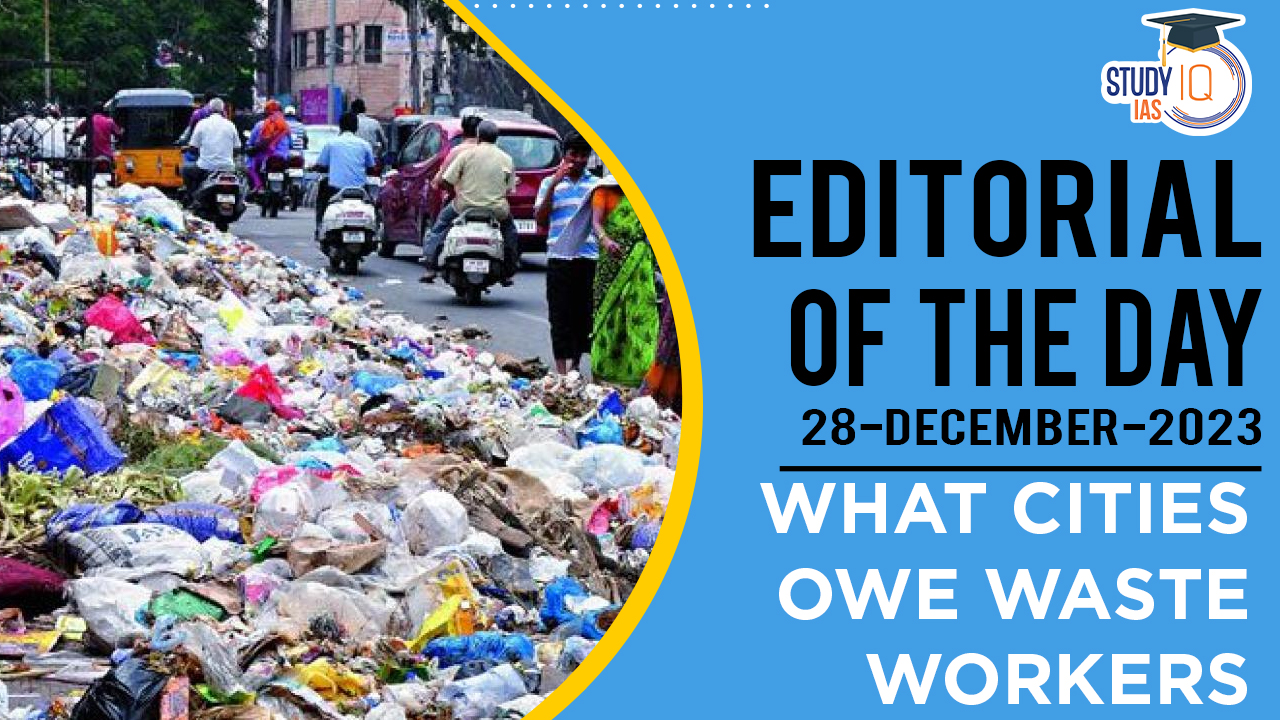Context: In March 2016, the Indian Ministry of Environment, Forests, and Climate Change introduced the Solid Waste Management (SWM) Rules, which aimed to change this by mandating occupational ID cards. Yet, many cities like Delhi lack implementation, leaving them facing poverty, health hazards, and exploitation.
Need For Occupational ID Cards for Waste Workers
- Dignity and Recognition: Occupational ID cards offer formal acknowledgement of waste pickers’ vital role in waste management. This tangible symbol validates their contribution and grants them dignity in the eyes of society.
- Gateway to Benefits: These cards serve as a key to unlock various socio-economic benefits previously out of reach. Access to healthcare, education, pensions, and social security is facilitated.
- Integration and Empowerment: Integration into formal waste management systems becomes possible, leading to fair wages and improved working conditions. Legal and spatial protection against exploitation is enhanced.
- Risks and Exploitation: Informal status exposes waste pickers to eviction and displacement, hindering their livelihood. Lack of recognition weakens their bargaining power, enabling exploitation by middlemen and corporations.
- Inspiration and Success Stories: Initiatives like Kagad Kach Patra Kashtakari Panchayat (KKPKP) and Hasirudala in Pune and Bangalore provide inspiration. Their efforts in issuing ID cards have led to positive social and economic changes for waste pickers.
We’re now on WhatsApp. Click to Join
| Case Study: Delhi’s Challenges |
|


 Utkal Divas 2025: Odisha Foundation Day ...
Utkal Divas 2025: Odisha Foundation Day ...
 List of Military Exercises of India 2024...
List of Military Exercises of India 2024...
 GPS Spoofing and Its Impact in India: A ...
GPS Spoofing and Its Impact in India: A ...





















